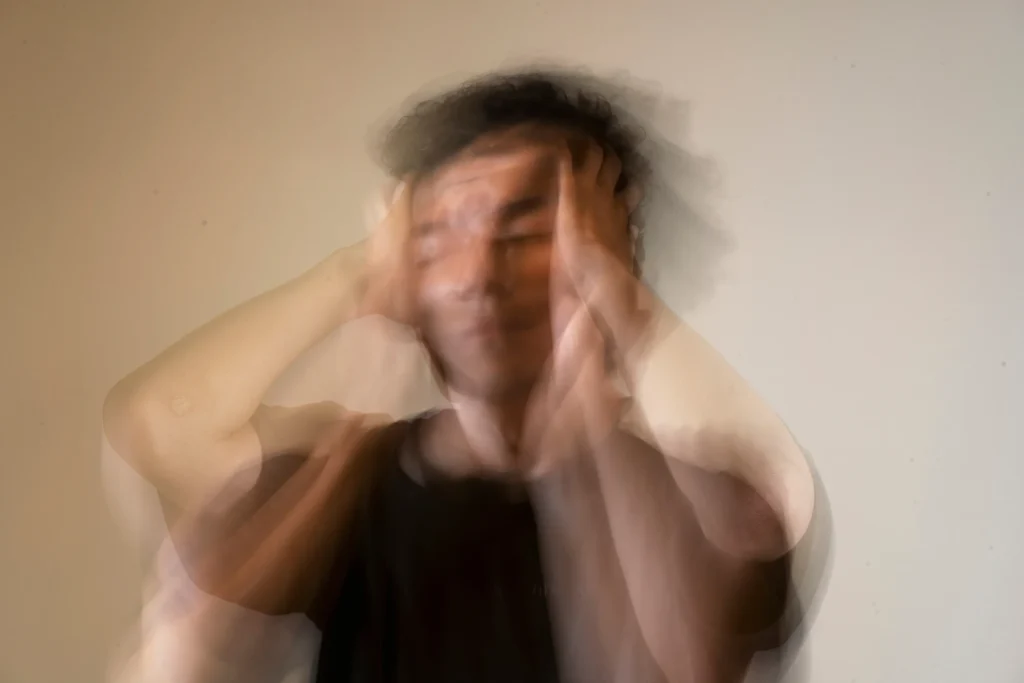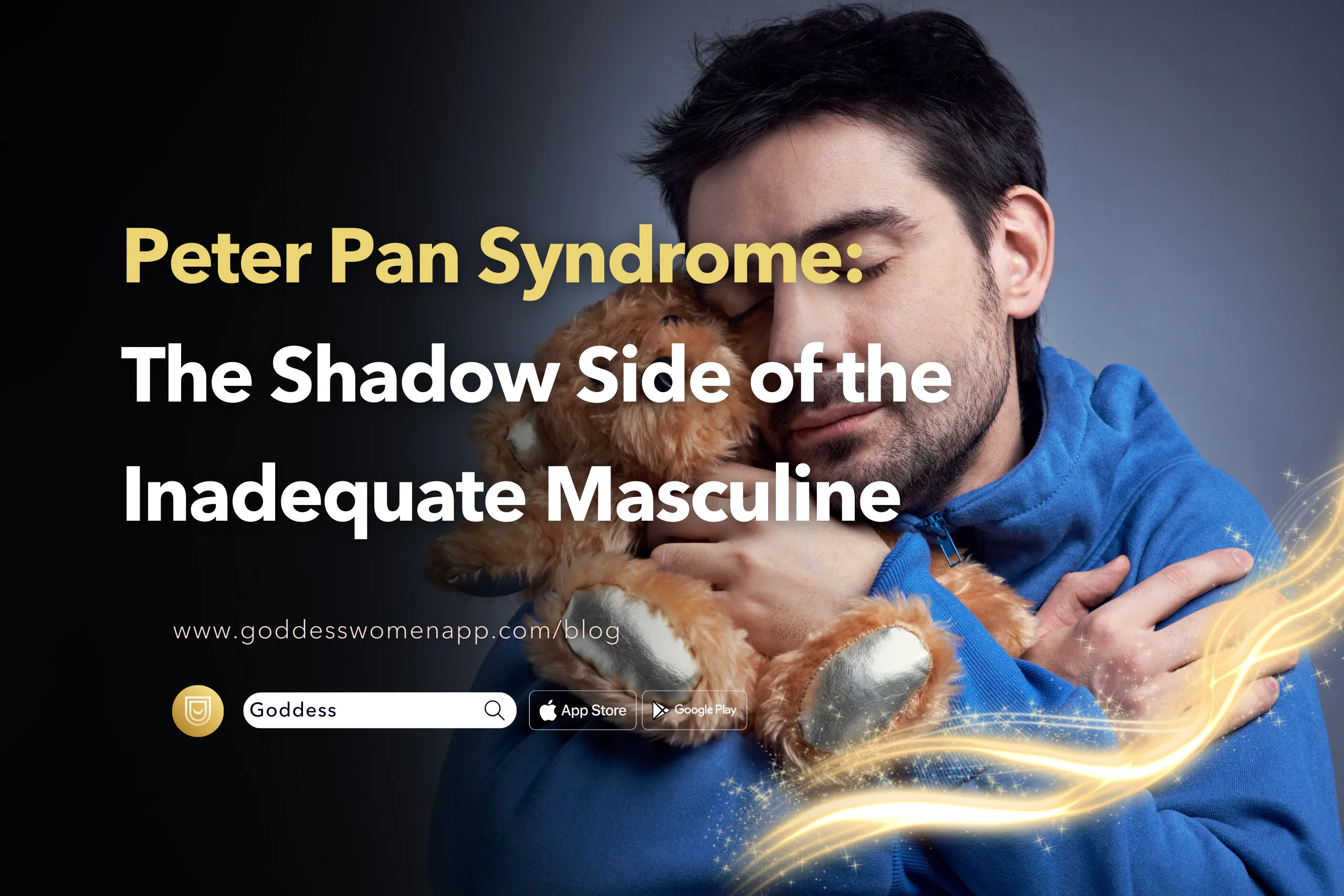Some men never grow up. They age, but they don’t mature. They avoid responsibility, shy away from emotional depth, and choose to remain childlike in relationships. This is not just a personal issue—it’s a reflection of a broader crisis in modern masculinity: the crisis of inadequate masculine energy. What psychology now identifies as “Peter Pan Syndrome” has become one of the most visible manifestations of the modern man’s inability to form a healthy connection with both himself and the world around him.
In this article, we will explore the psychological dynamics behind the man who refuses to grow up, through the lens of inadequate masculine energy. Because this issue is far from being individual—it reaches into the emotional well-being of their partners, their families, and ultimately society at large. Throughout the piece, I’ll offer practical approaches from Gent, a well-being mobile app we’ve developed for men.
My aim is to raise awareness, create space for inner transformation, and open the door to a more balanced, grounded, and socially beneficial form of masculine energy.
🎭 What is Peter Pan Syndrome?

Peter Pan Syndrome is the name given to a deep psychological and emotional conflict that has become increasingly common among men in the modern age. The term is inspired by J. M. Barrie’s famous character, Peter Pan—the legendary boy who never wanted to grow up. In psychological terms, Peter Pan Syndrome reflects a persistent resistance to the responsibilities of adulthood and a developmental state of being emotionally stuck in adolescence or early youth.
The syndrome manifests as difficulty—or outright refusal—in transitioning into emotional and psychological maturity. It is often characterized by avoidance of responsibility, fear of independence, childish behaviors, immaturity in emotional and sexual development, a lack of career direction, and struggles with forming healthy, secure attachments.
Although these individuals may age physically, they face significant inner challenges in stepping into adulthood. Their behaviors often include ongoing resistance to adult responsibilities, difficulty establishing independence, continued childishness, underdeveloped emotional and sexual maturity, unclear life goals, and major difficulties in forming and sustaining healthy relationships. Frequently, they exist in a state of internal “escape” in response to external expectations.
Low Masculine Energy and Peter Pan Syndrome
On a psychological and spiritual level, masculine energy is associated with life skills such as having vision, taking initiative, being decisive, and embracing responsibility. When this energy is healthy and balanced, it enables an individual to take the wheel of their own life. However, when masculine energy is underdeveloped, imbalanced, or lacking, it prevents a person from showing up in the world—and in their relationships—as mature, reliable, and grounded. This is precisely where Peter Pan Syndrome comes into play.
Peter Pan Syndrome refers to adult men remaining stuck in a childhood mindset and consistently avoiding responsibility. This syndrome is directly linked to an imbalance in masculine energy. Avoiding growth, resisting responsibility, struggling with independence, and shying away from emotional depth in relationships are all typical expressions of weak or misdirected masculine energy. And the consequences affect more than just the individual—they often lead to emotional burnout for the people close to them as well.
Individuals with unbalanced masculine energy may appear charismatic, creative, or fun-loving on the surface. But beneath that exterior often lie deep inner conflicts such as fear of commitment, aversion to uncertainty, and difficulty embracing an adult identity. For this reason, Peter Pan Syndrome is not merely a matter of individual psychological immaturity—it also reflects a distorted version of masculinity shaped by outdated societal narratives.
- Avoidance of Responsibility: A reluctance to take on the adult roles and responsibilities that life requires
- Dreaminess and Disconnection from Reality: A mindset that constantly postpones and escapes from the real world
- Difficulty Forming Bonds: Avoidance of emotional depth, commitment, and long-term connections
- Struggles with Decision-Making: Living in uncertainty and feeling directionless
- Poor Boundaries or Excessive Rigidity: Patterns of either passive or overly defensive behavior
- Resistance to Adult Identity: Viewing responsibilities in work, relationships, and life as restrictive or limiting
Low Masculine Energy/Inadequate Masculine

Psychosomatic symptoms are commonly observed in individuals with Peter Pan Syndrome. These may include chronic fatigue, headaches, digestive issues, and sleep disturbances. Such physical symptoms often reflect the individual’s underlying emotional and psychological state. The key characteristics of the inadequate masculine from my book “New Masculine”, including the following:
The Characteristics of Inadequate Masculine:
- Passive: Unable to be the subject of his own life; instead of making choices, he follows others’ decisions. He takes no initiative.
- Lazy: Struggles to take action; has dreams but lacks the effort and motivation to make them a reality.
- Shy: Has difficulty expressing himself, especially avoiding conflict. He may remain invisible in social relationships.
- Impotent (Not just in a sexual sense): Cannot find the power to change or direct things in his life; lacks belief in his own potential.
- Easily Influenced: Easily swayed; unable to set his own boundaries, becoming dependent on others’ opinions.
- Indecisive: Constantly stuck between options, decision-making processes exhaust him. He cannot bear the weight of responsibility.
- Constantly Complaining: Focuses more on stating problems than finding solutions. By using a victim mentality, he may emotionally manipulate those around him.
Possible Physical Problems
Peter Pan Syndrome, which refers to an individual’s rejection of adulthood and inability to achieve psychological maturity, is not confined to just mental or emotional aspects; it gradually leaves its mark on the body as well. The core dynamic behind this syndrome, inadequate masculine energy, manifests not only in behavior but also on a biological level. Modern psychosomatic approaches reveal that emotional imbalances and suppressed inner conflicts can have direct negative effects on physical health.
One of the most common physical issues seen in individuals with Peter Pan Syndrome is a weakened immune system. The avoidance of responsibility and constant stress, leading to increased cortisol levels, reduces the production of immune cells. This can result in frequent infections, chronic fatigue, and general weakness.
Another significant impact is seen in hormonal imbalances. A decrease in testosterone levels, in particular, can lead to a lack of motivation, sexual disinterest, and a general feeling of low energy. The individual may feel mentally and physically disconnected or “lifeless.”
Cardiovascular issues may also arise in this context. Long-term emotional stress, suppressed anger, feelings of inadequacy, and a sense of worthlessness can negatively affect heart rhythm. This may manifest as blood pressure imbalances, palpitations, or even early-onset hypertension.
Finally, impotence is not only a sexual dysfunction but also a sign of psychological and energetic exhaustion. The lack of masculine strength (the power to direct one’s life) prevents the individual from feeling productive, strong, and in control. This deficiency can deeply affect both relationships and the individual’s self-perception.
Practice Suggestions from Gent
Gent, a well-being app for men, offers various practical suggestions for dealing with Peter Pan Syndrome and inadequate masculine energy:
- Archetypal Transformation Journey: Among the masculine archetypes developed based on Carl Jung’s archetypal consciousness are Zeus (The King), Ares (The Warrior), Apollo (The Romantic), and Hephaestus (The Magician). So, which archetype are you? Which archetype guides your life the most? Download the Gent app now, start your personalized 21-day archetypal journey program, and begin a healthy transformation by balancing your inner masculine energy.
- Mindfulness and Meditation: To balance the flow of masculine energy and activate all the characteristics of a balanced masculine energy in your life, you can regularly practice the New Masculine’s 9 Code Meditation Series. Additionally, chakra balancing meditations, sound bowl sessions, and practices aimed at healing your inner child are waiting for you.
- Breathing Exercises: Breathing exercises are the key tool for resolving traumatic pain and emotional wounds stored in our bodies. By increasing body awareness, breathing exercises will help balance your masculine energy.
- Podcasts: Knowledge is the key to transformation. Without correcting what you’ve been misinformed about, you can’t expect change. We’ve carefully prepared informative podcasts to guide you at every step of your masculine transformation journey. You are not alone on this path, and you never were.

Conclusion: Facing is the First Step to Growth
Peter Pan Syndrome is not just a personal challenge experienced by individuals who reject adulthood; it is also a reflection of a broader crisis regarding the definition of “masculinity” in our time. Inadequate or imbalanced masculine energy makes it difficult for an individual to connect with life, while psychosomatic symptoms, hormonal imbalances, and physical ailments can become the bodily echoes of this inner chaos.
At the core of this syndrome lies the inability to form a healthy relationship with the self, avoidance of responsibility, fear of attachment, and emotional avoidance. However, this is not a fate; it is a process that can be transformed through awareness.
The practical suggestions offered in Gent, such as awareness practices for balancing inner masculine and feminine energies, body healing techniques, psychotherapy, and energy work, can be effective tools in transforming Peter Pan Syndrome. Most importantly, the willingness of the individual to face, reconcile, and, most crucially, grow, lies at the heart of this process.
It’s important to remember: each individual’s experience with Peter Pan syndrome is unique. Some may realize they are facing this syndrome only years later, while others may pick up clues through repetitive patterns in their relationships. Therefore, instead of self-diagnosing when you feel a problem or symptom, seeking support from a professional not only accelerates the healing process but also leads you to a deeper inner transformation. To learn more about the challenges about Peter Pan syndrome men face in society and to heal the masculine energy within you, you can refer to my book “New Masculine.”
💡 Remember:
Peter Pan Syndrome is not a weakness, but a call: a call to establish a deeper relationship with yourself.
True maturity comes not with age, but with the courage to face.
Emotional growth is sometimes the key to physical healing.
Learn more:




